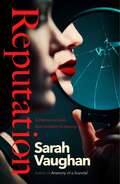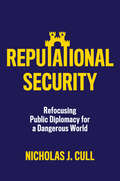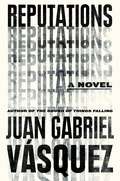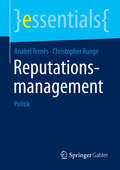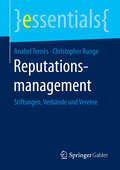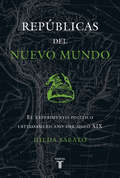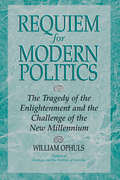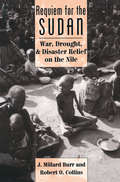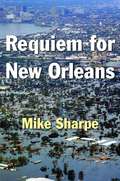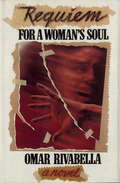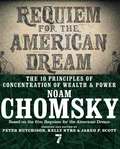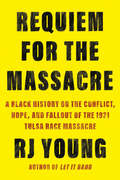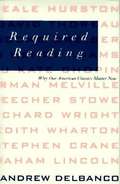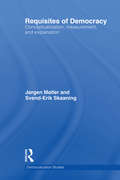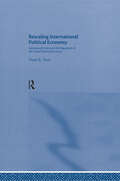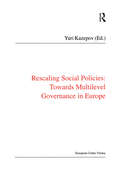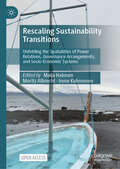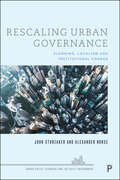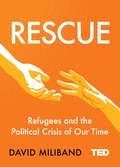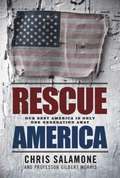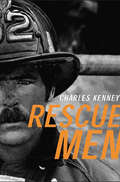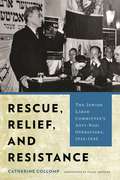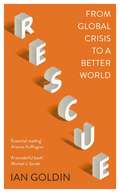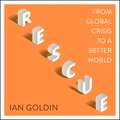- Table View
- List View
Reputation: the timely page-turner everyone is talking about
by Sarah VaughanA Simon & Schuster eBook. Simon & Schuster has a great book for every reader.
Reputational Security: Refocusing Public Diplomacy for a Dangerous World
by Nicholas J. CullWe are living in turbulent times, witnessing renewed international conflict, resurgent nationalism, declining multilateralism, and a torrent of hostile propaganda. How are we to understand these developments and conduct diplomacy in their presence? Nicholas J. Cull, the distinguished historian of propaganda, revisits the international media campaigns of the past in the light of the challenges of the present. His concept of Reputational Security deftly links issues of national image and outreach to the deepest needs of any state, rescuing them from the list of low-priority optional extras to which they are so often consigned in the West. Reputational Security, he argues, comes from being known and appreciated in the world. With clarity and determination, Cull considers core tasks, approaches, and opportunities available for international actors today, including counterpropaganda, media development, diaspora diplomacy, cultural work, and – perhaps most surprisingly of all – media disarmament. This book is crucial for all who care about responding to the threat of malign media disruption, revitalizing international cooperation, and establishing the Reputational Security we and our allies need to survive and flourish. Reputational Security is enlightening reading for students and scholars of public diplomacy, international relations, security studies, communications, and media, as well as practitioners.
Reputations
by Juan Gabriel VásquezFrom the author of The Sound of Things Falling, a powerful novel about a legendary political cartoonist. Javier Mallarino is a living legend. He is his country's most influential political cartoonist, the conscience of a nation. A man capable of repealing laws, overturning judges' decisions, and destroying politicians' careers with his art. His weapons are pen and ink. Those in power fear him and pay him homage. After four decades of a brilliant career, he's at the height of his powers. But this all changes when he's paid an unexpected visit by a young woman who upends his personal history and forces him to reconsider his life and work, questioning his position in the world. In Reputations, Juan Gabriel Vásquez examines the weight of the past, how a public persona intersects with private histories, the burdens and surprises of memory. In this intimate novel, Vásquez once again brilliantly plumbs universal experiences to create a masterly story, one that reverberates long after you turn the final page.
Reputationsmanagement: Politik (essentials)
by Anabel Ternès Christopher RungeAnabel Ternès und Christopher Runge zeigen am Beispiel Politik, dass es sich auszahlt, in eine hohe Reputation zu investieren. Gerade wer ein politisches Amt bekleidet, steht besonders im Fokus der öffentlichen Aufmerksamkeit. Jede Geste, jedes Wort kann von sozialen Netzwerken und Online-Medien aufgegriffen und in Windeseile verbreitet werden. Klassische Medien wie Tageszeitungen, Magazine und auch TV-Sendungen verbreiten die Nachricht zusätzlich weiter, und im Nu ist ein Skandal entstanden, dessen Folgen unabsehbar sind und oftmals das Ende der Karriere bedeuten. Wichtig ist daher, proaktiv vorzubauen, um den guten Ruf im Netz zu schützen – mit einem professionellen Partner an der Seite.
Reputationsmanagement: Stiftungen, Verbände und Vereine (essentials)
by Anabel Ternès Christopher RungeAnabel Ternès und Christopher Runge zeigen am Beispiel von Stiftungen, Verbänden und Vereinen, dass es sich auszahlt, in eine hohe Reputation zu investieren. Binnen Sekunden verbreiten sich schlechte Nachrichten und Bewertungen über soziale Netzwerke und Internetforen – mit unabsehbaren Folgen. Gerade für Stiftungen, Verbände und Vereine, die Spendern, Mitgliedern und Mäzenen Rechenschaft schuldig sind, wie sie mit den anvertrauten Geldern verfahren, ist es wichtig, stets den Überblick zu behalten, was „das Netz“ über die eigene Organisation sagt. Negative Meldungen und schlechte Presse können zu Mitgliederschwund und Spendenrückgang führen sowie den Ruf nachhaltig schädigen.
Repúblicas del Nuevo Mundo: El experimento político latinoamericano del siglo XIX
by Hilda SabatoUna versión completamente original sobre la historia de las repúblicas latinoamericanas en el siglo XIX que desmonta el mito del caudillismo y coloca a la región en el centro de una era revolucionaria que dio origen a nuevas prácticas políticas basadas en la soberanía popular y a nuevas ideas de ciudadanía. En la década de 1820, después de tres siglos de dominio imperial, los antiguos territorios españoles de América Latina se habían desprendido de sus lazos coloniales y habían fundado estados independientes. Al optar por la república, se embarcaron en un experimento político de una escala sin precedentes fuera de los recién formados Estados Unidos de América. Este libro desafía la visión de la región como una tierra de caudillos autoritarios y un caso de modernización fallida y demuestra que sus distintas experiencias republicanas se basaron en un principio claro de soberanía popular: la idea de que la autoridad legítima emana del pueblo. Como en otras partes del mundo, la transición de colonias a estados independientes fue compleja, incierta y conflictiva; sin embargo, el orden republicano latinoamericano atravesó fronteras, cruzó culturas y perduró. Sabato desplaza la mirada sobre gobernantes y élites a los ciudadanos comunes; en ese gesto rastrea el surgimiento de nuevas instituciones y prácticas que dieron forma a una vida política vigorosa e inclusiva y, al mismo tiempo, coloca a América Latina en el centro de una era revolucionaria que dio origen a nuevas ideas de ciudadanía.
Requiem For Modern Politics: The Tragedy Of The Enlightenment And The Challenge Of The New Millennium
by William OphulsThis long-promised sequel to Ophuls’s influential and controversial classic Ecology and the Politics of Scarcity is an equally provocative critique of the liberal philosophy of government. Ophuls contends that the modern political paradigm—that is, the body of political concepts and beliefs bequeathed to us by the Enlightenment—is no longer intellectually tenable or practically viable. Our attempt to live individualistically, hedonistically, and rationally has failed utterly, causing a comprehensive crisis that is at once political, military, economic, ecological, ethical, psychological, and spiritual. Liberal politics has abandoned virtue, rejected community, and flouted nature, thereby becoming the author of its own demise. By exposing the intrinsically contradictory and self-destructive character of Hobbesian political systems, Ophuls subverts our conventional wisdom at every turn. Indeed, his impassioned text reads more like a Greek tragedy than a conventional political argument. He critiques feminism, multiculturalism, the welfare state, and a host of other “liberal” shibboleths—but Ophuls is not yet another neoconservative. The aim of his thesis is far more radical and progressive, offering a political vision that entirely transcends the categories of liberal thought. His is a Thoreauvian vision of a “politics of consciousness” rooted in ecology as the moral and intellectual basis for governance in the twenty-first century. Ophuls holds that a polity based on a renewed erotic connection with nature offers a genuine solution to this crisis of contemporary civilization and that only within such a polity will it be possible to fulfill the worthy liberal goal of individual self-development. Ophuls’s work will interest and challenge a wide spectrum of readers, though it will not necessarily be well liked or easily accepted. No one will put down this book with his or her settled convictions about American culture intact, nor will readers ever again take modern civilization and its survival for granted.
Requiem For The Sudan: War, Drought, And Disaster Relief On The Nile
by J. Millard BurrAfter a decade of uneasy peace, the historic conflict between the North and South Sudanese erupted into violent conflict in 1983 This ferocious civil war, witti its Arab militias and widespread use of automatic weapons, has devastated the populace. In additon to the miseries of war, drought and famine took a further toll on an already battered societyalthough this regional calamity remains largely unknown to the outside world, over 1,000,000 people have either perished or been displaced. Furthermore, the Sudanese government seemed little inclined to help its own people Requiem for the Sudan provides a chilling account of the ravages of drought and civil war, graphically recounting how attempts by international agencies and humanitarian organizations to provide food and medical reliefhave been thwarted by bureaucratic infighting, corruption, greed, and ineptitude. Based on a wealth of previously unpublished documents, Requiem for the Sudan clearly illustrates how the failure of conflict resolution, organizational mismanagement, and a government hostile toward its own people had tragic human consequences.
Requiem for New Orleans
by Leon Sharpe"Requiem for New Orleans" is a lament for the destruction of a great city and scorn for those who allowed it to happen. Mike Sharpe writes: "New Orleans was not destroyed by a hurricane but by abandonment." Above all, "Requiem for New Orleans" is a meditation on our ability to overcome loss. It is an interweaving of biblical cadences, black idiom, standard American speech, jazz, and the caustic side of protest music. The author leaves us with a question: when will we learn what we must from the fate of New Orleans?
Requiem for a Woman's Soul
by Omar RivabellaIn a town in an unnamed Latin American country, a Catholic priest--racked by moral doubt regarding the Church's social role--discovers the torn papers of a diary belonging to a woman arrested and brutally tortured for no apparent reason.
Requiem for the American Dream: The 10 Principles of Concentration of Wealth & Power
by Noam Chomsky Jared P. Scott Kelly Nyks Peter Hutchison<P>In his first major book on the subject of income inequality, Noam Chomsky skewers the fundamental tenets of neoliberalism and casts a clear, cold, patient eye on the economic facts of life. <P>What are the ten principles of concentration of wealth and power at work in America today? They're simple enough: reduce democracy, shape ideology, redesign the economy, shift the burden onto the poor and middle classes, attack the solidarity of the people, let special interests run the regulators, engineer election results, use fear and the power of the state to keep the rabble in line, manufacture consent, marginalize the population. <P>In Requiem for the American Dream, Chomsky devotes a chapter to each of these ten principles, and adds readings from some of the core texts that have influenced his thinking to bolster his argument. <P>To create Requiem for the American Dream, Chomsky and his editors, the filmmakers Peter Hutchison, Kelly Nyks, and Jared P. Scott, spent countless hours together over the course of five years, from 2011 to 2016. After the release of the film version, Chomsky and the editors returned to the many hours of tape and transcript and created a document that included three times as much text as was used in the film. <P> The book that has resulted is nonetheless arguably the most succinct and tightly woven of Chomsky's long career, a beautiful vessel--including old-fashioned ligatures in the typeface--in which to carry Chomsky's bold and uncompromising vision, his perspective on the economic reality and its impact on our political and moral well-being as a nation. <P><b>A New York Times Bestseller</b>
Requiem for the Massacre: A Black History on the Conflict, Hope, and Fallout of the 1921 Tulsa Race Massac re
by RJ YoungLonglisted for the Reading the West Book AwardsNAACP Image Award Nominee for Outstanding Literary Work - Non-FictionWith journalistic skill, heart, and hope, Requiem for the Massacre reckons with the tension in Tulsa, Oklahoma, one hundred years after the most infamous act of racial violence in American historyMore than one hundred years ago, the city of Tulsa, Oklahoma, perpetrated a massacre against its Black residents. For generations, the true story was ignored, covered up, and diminished by those in power and in a position to preserve the status quo. Blending memoir and immersive journalism, RJ Young shows how, today, Tulsa combats its racist past while remaining all too tolerant of racial injustice.Requiem for the Massacre is a cultural excavation of Tulsa one hundred years after one of the worst acts of domestic terrorism in U.S. history. Young focuses on unearthing the narrative surrounding previously all-Black Greenwood district while challenging an apocryphal narrative that includes so-called Black Wall Street, Booker T. Washington, and Black exceptionalism. Young provides a firsthand account of the centennial events commemorating Tulsa's darkest day as the city attempts to reckon with its self-image, commercialization of its atrocity, and the aftermath of the massacre that shows how things have changed and how they have stayed woefully the same.As Tulsa and the United States head into the next one hundred years, Young&’s own reflections thread together the stories of a community and a nation trying to heal and trying to hope.
Required Reading: Why Our American Classics Matter Now
by Andrew DelbancoDelbanco relishes language and teaching. He draws from a deep well of knowledge as he analyzes the work of 11 American authors and ends with an essay on reading for pleasure. He explains how a writer's work reflects his or her experience, efforts to create through language, and personal philosophy and position on the issues of the time. He gives us samples of how Melville attempted to convey pleasure through words with an erotic intensity. He tells us that Steven Crane lived a short, wild, life haunted by the fear that nothing he could write would ever be better than or as good as, "The Red Badge of Courage. He imagines Edith Wharton would be dismayed by another writer's completion of and subsequent publication of one of her unfinished manuscripts. Sympathetically he describes the life of Zora Hurston who collected tales of African Americans during the 1930s told in their antiquated southern dialect. Hurston was at first adored, then died discredited and in poverty, and then her work gained approval again. Dreiser derived the inspiration for some of his female characters from his sisters' experiences. Lincoln's strength of character and conviction are stirringly illustrated but Delbanco sadly concludes that the opportunities Lincoln strove to protect for all Americans are now unattainable so the Lincoln who has inspired the nation for 150 years will fade in importance. This is a volume that will inform the reader about literature and American History. It can be read for pleasure or used as a reference. The complete index is included.
Requisites of Democracy: Conceptualization, Measurement, and Explanation (Democratization Studies)
by Jørgen Møller Svend-Erik SkaaningThis book brings together the conceptual and theoretical writings of Joseph Schumpeter, Robert A. Dahl, Guillermo O’Donnell, and T. H. Marshall. It demonstrates that most of the different conceptions of democracy in the democratization literature can be ordered in one systematic regime typology that distinguishes between ‘thinner’ and ‘thicker’ definitions of democracy. The authors argue that the empirical pattern revealed by this typology is explained by the combination of internal structural constraints and international factors facilitating democracy. The result of such contending forces is that most of the democratizations in recent decades have only produced competitive elections, rather than ‘more demanding’ attributes of democracy such as political liberties, the rule of law, and social rights. Examining theoretical and empirical approaches to measuring, defining and understanding democracy, the book will be of interest to scholars of political theory and comparative politics in general and democratization studies in particular.
Rescaling International Political Economy: Subnational States and the Regulation of the Global Political Economy
by Darel E. PaulA major trend in recent years in political and economic geography has been the increasingly sophisticated use of the concept of scale. Rescaling International Political Economy sits squarely in geographical debates regarding scale and globalization, but Darel Paul does it within the framework if international political economy. In particular, he argues for the importance of subnational states and localities in creating globalization, and focuses on regions in North America. Alongside his arguments about scalar transformations, Paul looks at how the processes serve transnational capital and how they work to construct the transnational capitalist class which currently rules the globe. His regulationist approach, which stresses how the centrality of state institutions in managing the global economy, will revolutionize how we think about globalization.
Rescaling Social Policies towards Multilevel Governance in Europe: Social Assistance, Activation and Care for Older People (Public Policy and Social Welfare)
by Yuri KazepovThe workings of multi-level governance -- institutional choices concerning centralisation, decentralisation and subsidiarity -- are widely debated within European public policy, but few systematic studies assessing the effects of changing divisions of power for policy-making have been carried out. This volume offers an assessment of the workings of multi-level governance in terms of social welfare policy across different clusters of European states -- Nordic, Southern European, Central and East European. This book reports on a major comparative study at the European Centre for Social Welfare policy and Research, which included partners from univerisities in Finland, France, Italy, Norway, Sweden, Poland, Spain and Switzerland. It reports on three particular policy areas: social assistance and local policies against poverty; activation and labour market policies; and care for the elderly. The authors describe different starting points, strategies and solutions in European countries which are facing similar challenges and could thus learn from each other. They explore the differences between European welfare regimes in terms of territorial responsibilities, the changes that have taken place over the past few years and their effects. The book is distinctive in highlighting comparative transversal and transnational issues of multi-level governance in social welfare policies, rather than presenting country reports.
Rescaling Sustainability Transitions: Unfolding the Spatialities of Power Relations, Governance Arrangements, and Socio-Economic Systems
by Maija Halonen Moritz Albrecht Irene KuhmonenThis Open Access book explores sustainability transitions with a focus on their influence on the relationships between cores and peripheries, the rural and the urban, and the large and the small-scale. The societal changes induced by sustainability transitions are expected to assemble as a variegated and heterogeneous process reproduced by different spatial contexts and scales. Hence, the practical solutions and impacts of processes framed as sustainability transitions are expected to vary between different localities in terms of their natural, material, or human resources, the heritage of the development, their power and market relations, virtual and physical connections as well as shifting individual rationalities – within and across certain socio-economic spaces. To highlight these socio-spatial processes, their alignments, frictions and contradictions for sustainability transitions, this book and its contributions call for an increased engagement in the scalar aspects of sustainability transitions and their governance. The authors argue that rescaling follows from two observations on the extant literature concerning sustainability transitions. Firstly there is a call for a stronger engagement of sustainability transitions research with questions of place and relocalization practices, their embedded power relations, but also questions on small-scale trajectories for the territorial and economic materializations in terms of production and market reach as an alternative to the large-scale dominance of resource exploitation and use. Secondly there is a call for increased attention to the relational processes and ontological framing that reproduce mobilities and scalar shifts in governance arrangements.
Rescaling Urban Governance: Planning, Localism and Institutional Change (Urban Policy, Planning and the Built Environment)
by John Sturzaker Alexander NurseCities across the globe face unprecedented challenges as a result of ever-increasing pressure from climate change, migration, ageing populations and resource shortages. In order to guarantee a sustainable global future, these issues demand radical new approaches to how we govern our cities. Providing new research and thinking about cities, their governance and innovative models of planning reform, this timely and important book compares the UK with an array of international examples to examine cutting-edge experimentation and innovation in new models of governance and urban policy. The flagship text of the Urban Policy, Planning and Built Environment series, this broad but accessible volume is ideal for students and provides an authoritative single point of reference for teaching.
Rescue
by David MilibandWe are in the midst of a global refugee crisis. Sixty five million people are fleeing for their lives. The choices are urgent, not just for them but for all of us. What can we possibly do to help? With compassion and clarity, David Miliband shows why we should care and how we can make a difference. He takes us from war zones in the Middle East to the heart of Europe to explain the crisis and show what can be done, not just by governments with the power to change policy but by citizens with the urge to change lives. His innovative and practical call to action shows that the crisis need not overwhelm us. Miliband says this is a fight to uphold the best of human nature in the face of rhetoric and policy that humour the worst. He defends the international order built by western leaders out of the ashes of the Second World War, but says now is the time for reform. Describing his family story as the son of refugees, and drawing revealing lessons from his life in politics, David Miliband shows that if we fail refugees then we betray our own history, values and interests. The message is simple: rescue refugees and we rescue ourselves.
Rescue America: Our Best America Is Only One Generation Away
by Chris SalamoneAuthor Chris Salamone offers inspiring action steps that every American can implement tomorrow and feel that they're making a difference. Exemplary citizenship requires learning the roots of our country's once-great promise and embodying the values of personal responsibility, gratitude, and sacrifice. Salamone presents revolutionary ideas for: revamping entitlement programs or eliminating them entirely; implementing a two-year mandatory national service, and investing in early childhood education -- in schools and in the home -- to create a greater sense of citizenship in future generations right from the start. While Salamone has strong conservative connections, this book attacks the weaknesses seen in both parties, and is intriguing regardless of one's political position. Working with Dr Gilbert Morris, the author analyses our founding documents and creates clear and specific connections between the loss of our founding values and the problems we face in our current political, economic, and cultural environment.
Rescue Men
by Charles C. KenneyThe men in Charles Kenney's family have been drawn to firefighting since his grandfather Charles "Pops" Kenney joined the Boston Fire Department in 1932. In his working class, Irish-Catholic neighborhood, there were other jobs that offered a decent wage, but none had the sense of belonging that comes with being a fireman, or the purity of purpose that comes with saving lives. Pops was on the scene of the notorious Cocoanut Grove fire in 1942; the author's father, "Sonny" served with distinction until an explosion blew him from a third-story window; and two of the author's brothers were "sparks" as children, amateur firefighters, whose career goals were thwarted by a court order integrating the Boston fire department and changing the rules for employment forever. One became a cop, the other a paramedic and rescue man with an elite squad sent to Ground Zero in the aftermath of the collapse of the World Trade Center. Spanning sixty years of firefighting history in America, Rescue Men captures what it's really like to be a fireman.
Rescue, Relief, and Resistance: The Jewish Labor Committee's Anti-Nazi Operations, 1934–1945
by Catherine CollompRescue, Relief, and Resistance: The Jewish Labor Committee's Anti-Nazi Operations, 1934–1945 is the English translation of Catherine Collomp’s award-winning book on the Jewish Labor Committee (JLC). Formed in New York City in 1934 by the leaders of the Jewish Labor Movement, the JLC came to the forefront of American labor’s reaction to Nazism and antisemitism. Situated at the crossroads of several fields of inquiry—Jewish history, immigration and exile studies, American and international labor history, World War II in France and in Poland—the history of the JLC is by nature transnational. It brings to the fore the strength of ties between the Yiddish-speaking Jewish worlds across the globe. Rescue, Relief, and Resistance contains six chapters. Chapter 1 describes the political origin of the JLC, whose founders had been Bundist militants in the Russian empire before their emigration to the United States, and asserts its roots in the American Jewish Labor movement of the 1930s. Chapters 2 and 3 discuss how the JLC established formal links with the European non-communist labor movement, especially through the Labor and Socialist International and the International Federation of Trade Unions. Chapter 4 focuses on the approximately 1,500 European labor and socialist leaders and left-wing intellectuals, including their families, rescued from certain arrest and deportation by the Gestapo. Chapter 5 deals with the special relationship the JLC established with currents in the Resistance in France, partly financing its underground labor and socialist networks and operations. Chapter 6 is devoted to the JLC’s support of Jews in Poland during the war: humanitarian relief for those in the occupied territory under Soviet domination and political and financial support of the combatants of the Warsaw ghetto in their last stand against annihilation by the Wermacht. The JLC has never commemorated its rescue operations and other political activities on behalf of opponents of fascism and Nazism, nor its contributions to the reconstruction of Jewish life after the Holocaust. Historians to this day have not traced its history in a substantial way. Students and scholars of Holocaust and American studies will find this text vital to their continued studies.
Rescue: From Global Crisis to a Better World
by Ian GoldinAn optimistic vision of the future after Covid-19 by a leading professor of globalisation at the University of Oxford.We are at a crossroads. The wrecking-ball of Covid-19 has destroyed global norms. Many think that after the devastation there will be a bounce back. To Ian Goldin, Professor of Development and Globalisation at the University of Oxford, this is a retrograde notion. He believes that this crisis can create opportunities for change, just as the Second World War forged the ideas behind the Beveridge Report. Published in 1942, it was revolutionary and laid the foundations for the welfare state alongside a host of other social and economic reforms, changing the world for the better. Ian Goldin tackles the challenges and opportunities posed by the pandemic, ranging from globalisation to the future of jobs, income inequality and geopolitics, the climate crisis and the modern city. It is a fresh, bold call for an optimistic future and one we all have the power to create.
Rescue: From Global Crisis to a Better World
by Ian GoldinAn optimistic vision of the future after Covid-19 by a leading professor of globalisation at the University of Oxford.We are at a crossroads. The wrecking-ball of Covid-19 has destroyed global norms. Many think that after the devastation there will be a bounce back. To Ian Goldin, Professor of Development and Globalisation at the University of Oxford, this is a retrograde notion. He believes that this crisis can create opportunities for change, just as the Second World War forged the ideas behind the Beveridge Report. Published in 1942, it was revolutionary and laid the foundations for the welfare state alongside a host of other social and economic reforms, changing the world for the better. Ian Goldin tackles the challenges and opportunities posed by the pandemic, ranging from globalisation to the future of jobs, income inequality and geopolitics, the climate crisis and the modern city. It is a fresh, bold call for an optimistic future and one we all have the power to create.
Rescue: From Global Crisis to a Better World
by Ian GoldinAn optimistic vision of the future after Covid-19 by a leading professor of globalisation at the University of Oxford.We are at a crossroads. The wrecking-ball of Covid-19 has destroyed global norms. Many think that after the devastation there will be a bounce back. To Ian Goldin, Professor of Development and Globalisation at the University of Oxford, this is a retrograde notion. He believes that this crisis can create opportunities for change, just as the Second World War forged the ideas behind the Beveridge Report. Published in 1942, it was revolutionary and laid the foundations for the welfare state alongside a host of other social and economic reforms, changing the world for the better. Ian Goldin tackles the challenges and opportunities posed by the pandemic, ranging from globalisation to the future of jobs, income inequality and geopolitics, the climate crisis and the modern city. It is a fresh, bold call for an optimistic future and one we all have the power to create.(P) 2021 Hodder & Stoughton Ltd
